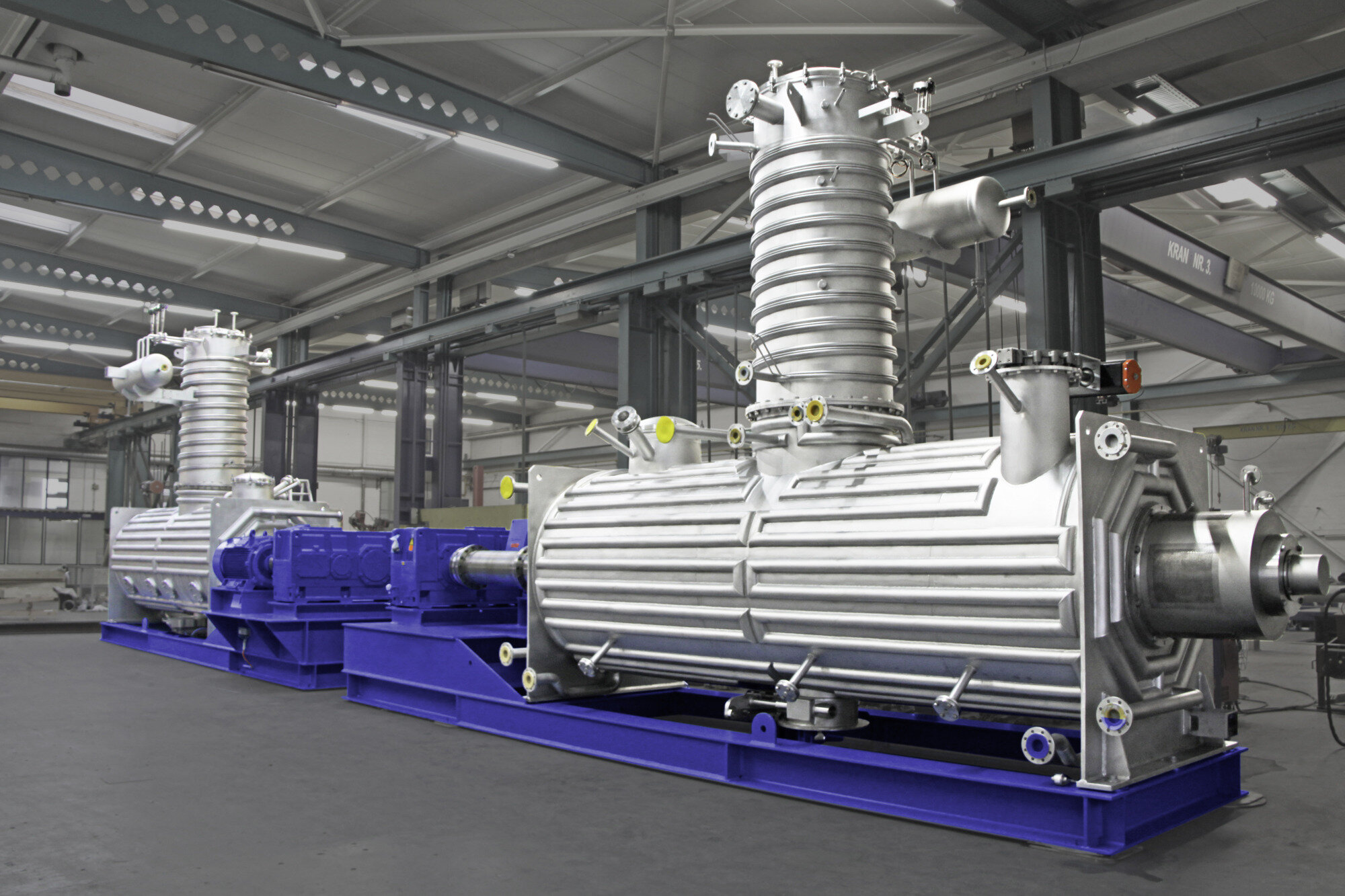Reliable Processing. Using Resources Sustainably. Customized Solutions.
Our solutions for processing metal sludges as well as metal recovery and recycling metal dusts can be used flexibly for different feedstocks.
Optimally recycling industrial sludge containing metal
Be in it the chemical or metal industry – many industrial sludges and dusts generated during production and metal working and processing procedures contain valuable metals. However, recovering these raw materials in an environmentally friendly way is a challenge, as they are contaminated with oil, water and other – sometimes hazardous – substances. As experts in process technology and metal recovery, we develop flexible recycling plants for sludges containing metal, as well as metal dusts and powders, which are perfectly adapted to the respective requirements and starting materials. This turnkey plant, which consists of a vacuum dryer as the core unit, can be used to recover and recycle valuable resources. This reduces production costs and benefits the environment, too.
Metal sludges
Processing and Cleaning Metal Sludges – Consistently High Product Quality

Processing and Cleaning Metal Sludges – Consistently High Product Quality
Industrial and metal sludges come in an extremely wide range of forms. The challenge is that the quality of the end product must always be right – no matter the composition of the starting material. That is why BHS-Sonthofen systems are designed for flexibility.
Depending on the substances that have contaminated the sludge, for example, the temperature can be suitably adjusted during drying with a vacuum dryer. High temperatures, for example, ensure the optimum processing of oily sludges, while lower temperatures can save energy for feedstocks with a higher water content. The target products from the HTC-T horizontal dryer (vacuum dryer) are pure metal powders and purified sludges. This enables the valuable metals to be returned to the raw material cycle efficiently.
A granulator (single-shaft mixer) is then used so that smelters can process the metal powder further. This adds an event amount of binder to the fine powder, which leads to agglomeration or granulation. Depending on requirements, an additional press processes the recovered metals into briquettes that are easier to transport.
Metal dusts and chips
Recycling Metal Dusts and Chips – Optimal Recycling Thanks to Pre-processing

Recycling Metal Dusts and Chips – Optimal Recycling Thanks to Pre-processing
Machining processes are a common source of metal chips and dusts. These are usually extracted during the process and collected in big bags. These mixtures of different-sized chips and dusts need to be pre-processed for them to be recycled. BHS offers the right process solutions for this according to the starting material and customer requirements, for example, drying and granulating technology as well as crushing technology for larger chips.






















































